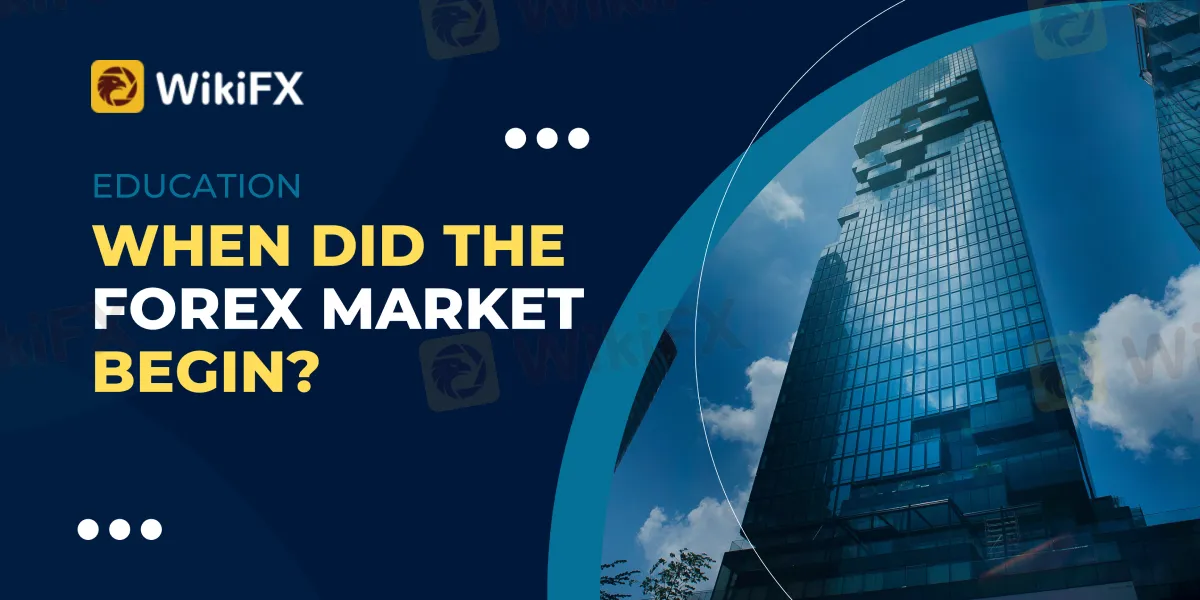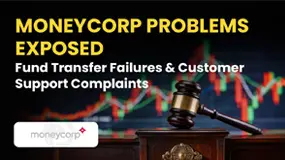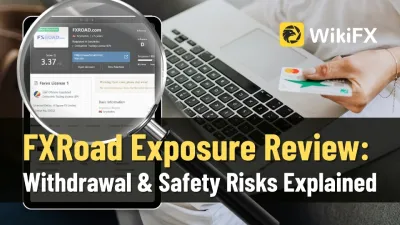Global Brokers Expand Into Crypto Trading While Testing Prediction Market Models
Regulators are scrutinizing prediction markets as brokers add crypto assets to their platforms. Is innovation outpacing compliance?
简体中文
繁體中文
English
Pусский
日本語
ภาษาไทย
Tiếng Việt
Bahasa Indonesia
Español
हिन्दी
Filippiiniläinen
Français
Deutsch
Português
Türkçe
한국어
العربية
Abstract:You may be aware that the foreign exchange market is one of the world's largest and most lucrative marketplaces. Did you realize, though, that humans have been exchanging money since ancient times? In reality, the current FX market was influenced by a sequence of global events that began in Babylonia.

You may know that the foreign exchange market is one of the biggest and most profitable markets in the world. However, did you know that people have been trading currencies since ancient times? In fact, the FX market as we know it now was shaped by a series of global events that started in Babylonia.
The Gold Standard
Before paper money, people used the barter system to trade goods and services. When the first gold coins were made in the sixth century BC, the system developed. Gold was quickly accepted as a way to buy and sell things because it was strong and hard to get.
Carrying gold, however, proved impossible due to its weight. Countries began to employ the gold standard in the 1800s. In this deal, governments agreed to let people freely trade paper money for set amounts of gold.
Until the world wars caused European governments to generate additional money to compensate for war damage, the gold standard had proven to be a successful system of commerce.
The Bretton Woods Agreement
The Bretton Woods System, implemented at the close of World War II, began the transition of the global monetary system from the gold standard to the current currency market.
In 1944, the historic Bretton Woods Agreement was reached. The dollar replaced gold as the basis for international transactions under the new accord. The dollar was worth $35 at the time, or 1/35th of an ounce of gold.
Participating nations agreed to a fixed peg to the US currency, with only 1% deviations allowed.
Countries also had to keep an eye on their currency pegs to ensure they remained stable. They accomplished this by buying and selling US dollars with their own currency.
The Bretton Woods Agreement eventually failed to peg gold to the currency because there was insufficient gold. The Bretton Woods System was abolished by President Richard M. Nixon in 1971, and it was finally replaced with the free-floating currency system.
The Free-Floating System
From 1972 to March 1973, the FX markets were forced to shut down due to the failure of the Bretton Woods System.
European nations implemented the European Joint Float to lessen their reliance on the US dollar. Regrettably, the system likewise failed in 1973.
As a consequence, the globe began to shift toward a free-floating system. Under this arrangement, the exchange rates for the currencies that took part changed every day. The system effectively ended governmental control of the foreign exchange, paving the stage for relatively open market conditions.
The Modern Forex Market
The FX market is now open 24 hours a day, 5.5 days a week, with a daily trading volume of $5 trillion. People may instantly exchange currencies via the internet from any place and at any time of the day. Forex traders may also obtain crucial economic data and price alerts.
Choosing the Best Broker
WikiFX is a forex trading search engine that provides a complete f information about a certain forex brokers. Over 39,000 brokers, both regulated and unregulated, are listed on the platform. To tackle these trading issues, the WikiFX team has collaborated with 30 financial regulators from across the globe.

This platform was made to help people who are new to the foreign exchange market figure out how to choose the best broker for their trading needs.
Keep an eye out for more educational posts.
WikiFX may be downloaded through the App Store or the Google Play Store.

Disclaimer:
The views in this article only represent the author's personal views, and do not constitute investment advice on this platform. This platform does not guarantee the accuracy, completeness and timeliness of the information in the article, and will not be liable for any loss caused by the use of or reliance on the information in the article.

Regulators are scrutinizing prediction markets as brokers add crypto assets to their platforms. Is innovation outpacing compliance?

Failing to transfer funds into or out of your Moneycorp trading account? Have you faced a sudden account closure by a United Kingdom-based forex broker? Has the broker’s customer support service failed to resolve your queries? Did their behavior remain far from good while addressing your queries? You are not alone! Many traders have questioned such alleged trading practices by the broker. In this Moneycorp review article, we have highlighted some of their complaints. Read on!

Saracen Markets claims “regulated,” but serious red flags suggest scam risk—see what to verify before depositing. Read our Saracen Markets review and scam alert now.

FXRoad exposure review: withdrawal red flags, offshore status, and safety risks explained. Learn what to watch for and how to protect your funds—read now.
